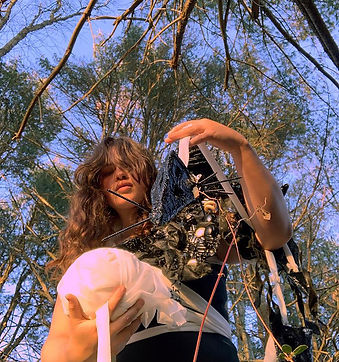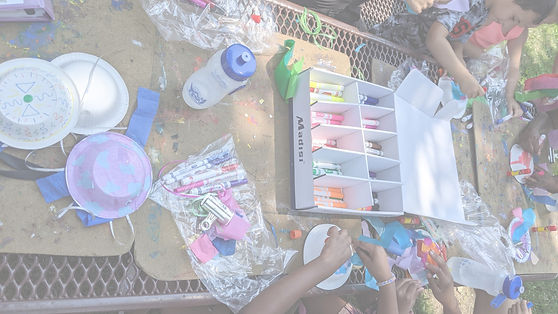
“Like the soil, mind is fertilized while it lies fallow, until a new burst of bloom ensues.”
― John Dewey, Art as Experience
Teaching Philosophy
Learning is the act of engaging, reflecting, understanding, and responding through creation. Our students are not the only ones who are constantly learning. As teachers we learn through experience and from our students daily, as taking time to understand and get to know our students builds a sense of community. In order to encourage successful outcomes for my students, I believe it is important to create a safe and welcoming environment in which students feel comfortable exploring new knowledge while also expressing what makes each one of them unique. In the visual arts classroom, the naturalistic goal as human beings is to capture our own experiences and express them in forms to communicate to our peers (Gardner, 1998). This act of self-expression within the classroom not only allows the students to explore their own ideas but also encourages them to communicate who they are to themselves and thus present it to their peers.
Throughout my curriculum students will employ critical thinking methods in depth through class discussions relating to important and thought-provoking topics. Conversation is the catalyst to improvement, growth, and development through the process of assessing, developing ideas, and understanding (Helguera, 2011). To enhance their part in the learning process, I will view my students as active learners who are capable of participation (Gradowski, 1998). Not only will this increase their engagement but will allow them to take more responsibility for their own learning.
These forms of learning allow students to increase their ability to problem solve through discussions. Implementing critical thinking to turn new knowledge into creation. I will view my class is a community while embracing the diverse methods that students learn and engage. As I believe that all students should be given the opportunity to succeed and all should be seen as equal. Through creating an open environment, I want students to feel comfortable approaching me with ideas and problems of classroom values or personal reflections. In academic terms, encouraging questioning is important to the process of learning as it builds innovative thinking and the discovery of solutions. To assess student growth and learning through a class, I will be grading based on the process of the project more than the product. As I believe through the process of creating, students grow and develop new skills artistically and cognitively.
As I’ve grown as a teacher, I have learned the importance of facilitating and guiding students to success. I believe it is important to take into consideration that there is no end to learning. One is to explore and create over a lifetime. The experience is the result of the interaction between being and form (Dewey, 2005). Student assessments are guides to grow as a teacher as well as the reformation of my curriculum and methods to better suit the classroom atmosphere. By researching and reflecting upon new methods of teaching, this will increase my own knowledge, expanding what I can convey to my students. As the expansion of a teacher’s knowledge is closely connected to the expansion of the student’s knowledge.
